- Home
- Gerald Hammond
Fair Game Page 11
Fair Game Read online
Page 11
‘Did you have the car in London with you?’ she asked.
Mr Enterkin, pending the disposal of a large mouthful of chop with assorted veg, shook his head.
‘It’d have done your image good with all the other lawyers,’ she pointed out.
‘You can’t get the use of a car in London these days, and nobody gets out of the way for a Rolls any more. At home,’ Mr Enterkin added, ‘Keith walks around all the time with a shotgun, and everybody gets out of his way. Perhaps I should try that.’
‘The Rolls didn’t come back here.’
‘Keith had it. I believe he turned up with it at a clay pigeon meeting yesterday and caused a sensation. Mark you, Hayes and the car should have been back here, but Hayes wanted to stay over and visit his sister.’
‘Sister!’ she said scornfully. ‘Bert Hayes doesn’t have any sister.’ She waited in suppressed silence as Harvey Brown served wine. ‘You shouldn’t encourage him,’ she said when they were alone again. ‘He was in trouble with Mr Grass already for that.’
‘Was he, though?’
‘Yes indeed. Mr Grass was having a pink gin in the bar there one day, and in comes Mr Beavis. He owns most of the land west of here, ’though he’s not often up from London. “Thought you were going to come and see me,” he says, “next time you were in Town, and talk about this here old trust of yours,” he says. And Mr Grass says, “But I haven’t been in Town for a month or more.” “But I saw your car there, day before yesterday,” says Mr Beavis. “Which one?” says Mr Grass. “The Rolls, of course,” says Mr Beavis, “or I wouldn’t have noticed otherwise.” And, to cut a long story short, it turns out that Bert Hayes had the car away, supposed to be back at the makers for something, I suppose the ashtrays were full, and you can guess the rest. Proper old row Mr Grass gave him, from what I heard.’
Mr Enterkin filed the information away in his mind for Keith’s benefit. He had no objection to the investigation of the alleged murder, as long as the estate did not pay for it. ‘Does the general give dinner parties?’ he asked.
‘Not very often.’
‘Is he planning to have one soon?’
She raised her eyebrows. ‘Why, how would I know that?’
‘I’m prepared to bet that you do. You are omniscient. Try.’
She thought for a few moments. ‘Well, when he does, his daughter usually goes over to prepare it for him. And she usually asks Mrs Brown to go over and sit with her children. Not always, mind you, but usually. And when she does, Mrs Brown warns me to take over the kitchen here. And she hasn’t.’
‘So,’ said Mr Enterkin, ‘it doesn’t sound likely that he’s planning a dinner. But Keith says that Brutus pinched a big pheasant out of his kitchen.’
‘That’s a useful little dog to have.’
‘Keith gave it back. He had to, the general had seen him. Of course, pheasants are about as far out of season as they can get. The general explained that it had been frozen, and he was going to give a dinner party. Well, you can freeze a bird in full feather, but it isn’t usual, and Keith said that it didn’t feel as if it had been frozen, he said it felt limp and slightly warm. And the kitchen door was open, and Keith saw two or three more of them on the table, all cock birds.’
She met his eyes. ‘I think you’d have to talk to Mr Winter about that sort of thing,’ she said, ‘not to me.’
Mr Enterkin struggled to his feet. ‘Will you excuse me for a minute?’ he asked. ‘I think I’ll make a phone call.’
*
There was still much of the estate which Keith had yet to walk over. He decided to kill two birds with the minimum of shot by walking to North Farm.
The sun was still in hiding but the mist had cleared. Keith was happy to be out in the open again, and with the familiar weight and balance of his own gun hooked over his arm. Brutus was quivering with pleasure. He romped for a few minutes and then settled down into hunting a zigzag pattern in front of Keith, well within gunshot.
The route was easy to follow. After half a mile, they encountered Winter, removing a dead rat from a Fenn trap set in a tunnel beneath the corner of a hedge. Winter seemed glad to straighten his back and chat for a few minutes about the unwelcome build-up of the pigeon population. ‘The farmers want every gun out. The last thing I could thole would be a lot of shooting, just at this time; but if I refuse, the farmers’ll blame me for every bittie of crop damage and I’ll not get the help I need.’
‘You can’t win,’ Keith said sympathetically. ‘And did you know that you’re being poached? Somebody’s been setting dunce’s caps.’ He described the location of the small spinney.
Winter took out a cigarette. ‘I can’t pretend to be surprised,’ he said at last.
‘You know who’s doing it, don’t you?’
‘Do you?’
‘Not to be sure,’ Keith said. ‘But there were some cock-pheasants in a certain kitchen, and one of them had a stickiness about its head. The gentleman concerned says that they’d been frozen and he was thawing them out for a dinner party, but it doesn’t seem likely at this time of the year, and I’m told that there doesn’t seem to have been any dinner party either.’
‘You’re speaking about the general?’
Keith nodded.
‘Well, it’s a relief to talk about it,’ Winter said with a small sigh. ‘I’d been wondering if Mr Grass would’ve wanted me to tell you. You’re nae here for long, and you’ve enough to do – time enough, I thought, when the new director’s appointed. Tell the truth, I just wasnae sure what to do. I’ve kent about the general for years, and I told Mr Grass. The general was poaching awa’, saving up unplucked pheasants in that freezer of his, and then thawing them out and selling them to the hotels at the very start of the season when prices were high.
‘“Damn the man,” says Mr Grass, “but at least he’s sticking to cocks after they’ve served their turn”. Then, last winter, I’d to speak to Mr Grass again. “Getting to be too much of a good thing, isn’t it?” he says. “I wish he’d stick to snaring a few bunnies. Leave it to me, Winter,” he says, “and I’ll speak to him”.’
‘And did he?’
‘I dinnae ken. He died soon after.’
Keith was troubled. He held the general in the sort of affection that a man has for an unruly pet dog. ‘It’s all very well saying that the cocks have done their job, but they’re a harvestable asset belonging to the estate and part of next year’s shooting. It’s not for us to be generous. Whatever Mr Grass’s attitude may have been during his lifetime, his will reads differently. I suppose I’ll have to have a word with the general.’
‘Make it a firm one,’ Winter said. ‘Dinnae go soft wi’ the blighter. He may be gey old, but he’s as fit as a flea. Mr Grass would say, “He canna’ hae muckle siller, an’ he needs an interest in life”, but if you ask me it’s plain bloody thieving.’
‘He sees himself as John Macnab, but we see him as Bill Sykes,’ Keith said sadly.
‘That’s as maybe. How’s your dog coming?’ Winter seemed relieved to turn the subject. The buck had been firmly passed.
Keith looked down at Brutus who was lying relaxed at his feet, and the young dog looked up, conscious of being the subject of interest, and thumped his tail twice. ‘He’s coming along very well,’ Keith said. ‘Steady as a rock, and retrieving fur and feather already.’
‘Now’s your chance to show me,’ Winter said. ‘Pigeon coming over.’
Keith closed his gun. Sure enough, a fat pigeon was following the line of the hedge, drawn to join the flock feeding in a distant field. Keith raised his gun. As he swung through, the bird passed the trunk of a tree and Keith’s gun checked its swing. He missed behind. The pigeon swerved and accelerated away, drawing with it like a shadow Brutus, who was straining every sinew to stay vertically below the bird and catch it when it dropped. Soon he was out of sight.
Winter forced the smile off his face. ‘Well, he’s keen,’ he said.
Brutus was well aware of havin
g broken the first rule of his training, and he was in no hurry to return and face the music. By the time that he had come back, suitably chastened, to heel, an hour had gone by. Keith, infuriated by the bad behaviour and by the knowledge that to punish a dog on its return was a fundamental error in training, would have given up and gone back to Whinkirk House to await Mr Enterkin. But a good trainer stops on a victory, never on a defeat. So he pressed on towards North Farm, keeping Brutus strictly to heel (which he hated), and was rewarded by dropping three pigeon with four shots and having Brutus perform to perfection.
The buildings of North Farm, when they came to them, were well kept and the yards were tidy and clean. They were guarded by quite the most ferocious dog that Keith had ever seen. It was, as Winter had said, half Collie; the other half seemed to have been mostly Alsatian with perhaps a trace of grizzly bear. Keith circled round well out of range, but Brutus trotted by with a display of nonchalance, just outside the stretch of the creature’s chain and the reach of its teeth.
Mr Yates, whom they met a few yards further on, seemed deaf to the snarling of his beast, although Keith could hear him only with difficulty over the ominous noise. Yates was a man of about sixty, thin, tall and stooping, and bald but for a few random patches of hair that sprouted from his wrinkled scalp like ill-sown seed from ploughed land. His face wore a disagreeable expression of craftiness which turned out to be habitual, and his clothes were disreputable even for a working farmer, depending largely on binder-twine for support and cohesion.
Despite this unprepossessing appearance, Keith thought at first that he might have found a kindred spirit. The farmer was carrying a hammer-gun older than himself – by Playfair of Aberdeen, Keith noticed, and dating from perhaps 1870 – and a bag of the pigeon which he insisted were decimating his crops and garden and putting him in imminent danger of bankruptcy, and he was pleased to note, on comparing bags, that while Keith had made a small inroad into the problem his own was considerably larger.
‘You’ve an interesting old gun there,’ Keith said, ‘but perhaps it’s time you had a new one. If times are so hard, perhaps you’d like me to make you an offer?’
‘Not for sale,’ the farmer said, but he looked pleased. ‘Belonged to my father. You’ll no’ find a harder-shooting gun around here. It got more cushies than your modern rubbish, didn’t it?’
Keith’s own Boss was thirty years old, and he suspected that the farmer had gathered his pigeon by spilling some tail-corn in the barn-yard and then shooting his birds on the ground from within the barn, but he knew better than to say so. He also knew better than to try to force a deal on price alone. ‘Would you take ten quid to leave it to me in your will?’
‘I’ll think about it,’ the old man said, but he was clearly tickled by the prospect of money in his hand in exchange for goods which he could retain for his lifetime. Keith for his part was quite prepared to spend twice the sum and wait a few years. Under the grime and some superficial rust, he could see a fine gun and the twist of the best pair of Damascus barrels that he had come across. They smiled on each other.
The bonhommie ended suddenly as the farm dog made a lunge and broke its chain near the collar. It hesitated for a moment, as surprised as any at its sudden release. Then it moved into a low, fast attack.
The two men froze, but Brutus kept his head. He would have rolled over in a possibly disarming gesture of submission, but the beast was coming not at him but at Keith, eyes and teeth gleaming white. And this was no ritual attack, to be broken off at the last instant.
Brutus gathered his strength and courage and went for the creature’s throat. He got a firm but not a killing grip, and hung on for his life while the much bigger dog shook him around while seeking his own grip.
Keith was afraid to kick in case the jolt dislodged Brutus and gave the farm dog its chance. He dropped a cartridge into his gun, closed the breech and snapped off the safety catch.
The old farmer gave an inarticulate roar and hurled himself down on the two dogs, trying to tear them apart with his hands and nearly getting himself shot. A quick slash from his own dog set the first blood flowing.
Keith looked frantically around the yard. Outside what he took to be the milking-parlour there was a tap with a hose attached. Fumbling in desperate haste, he turned the water on, dragged the spluttering hose across and played it across the three scrambling figures. Brutus released his grip immediately and was as quickly gripped by the other dog. His screams shrilled around the yard. At close range, Keith blasted the hose into the big dog’s mouth and nostrils. After a few seconds, reluctantly, it released its grip.
With a strength remarkable for his age, Yates dragged his dog to a shed, booted it inside and latched the door. He was sodden and blood from his hand and arm dripped over the cobbles.
Keith was down on his knees beside Brutus, holding his flesh together to minimise the loss of blood. Brutus was struggling to get on his feet. ‘Use your phone,’ Keith said. ‘Call Whinkirk House for a car to take me to the nearest vet.’
Yates came back and picked up his gun. ‘Don’t you ever lift a gun to my dog,’ he said.
‘If he comes near my dog again, I’ll blow him in half. Go and phone.’
‘Aye. I will. You’re no’ welcome here. Give me back my letter of permission.’
‘The hell with you,’ Keith said. ‘How did Mr Grass’s dog die? Was it like just now?’
The old man backed away. ‘No,’ he said. ‘No, it wasna’.’
‘Come up to Whinkirk House and see me about your tenancy,’ Keith said. ‘But if that bugger’s still alive, don’t bother coming.’
The furious barking of the big dog seemed to shake the buildings around the yard.
Chapter Fourteen
The first few days of a new era always remain clear and separate in the memory. Later, the days merge and only the major events stand out. When Keith was asked for his written statement, he found that he had reached that stage during that crucial week.
His days began to settle into a variable routine. While Molly relaxed, roaming with a camera or enjoying the sun in a deck-chair when it was fine, or spending duller weather in front of a log fire, Keith busied himself about the estate’s business. Whenever he could, he walked with his gun, and Brutus was always with him. Brutus knew, as dogs know these things, that Keith was in his debt, and he took to walking on Keith’s right so that the shaved area and the sixteen stitches around his left shoulder were in clear view.
But, reluctantly, Keith had to spend much of his time in the house, dealing with the setting-up of the trust and seeing, on Mr Enterkin’s behalf, most of the callers to the house. For Mr Enterkin seemed to be unaccountably busy at the inn.
First came the general, early in the day, vast and breezy as usual. ‘Wanted to see me? Got message. Walked over. Nothing wrong about lease?’
‘Not your lease,’ Keith said. ‘It’s about the shooting. The executors have been spelling out the conditions.’
‘White coat when I shoot,’ the general said. ‘Understood.’
‘Not quite. If you want to retain the shooting privileges, you must wear the white coat whenever you’re after any kind of game or vermin whatever. That means that you will lose those privileges if you are found on the estate without your white coat but with any means whatever of taking or catching any live creature.’ Keith was looking the general full in the eye. ‘And that includes any kind of gun or catapult, longbow or crossbow, airgun, traps, snares, treacle, raisins, sulphur or jam-jars. It also includes being accompanied by any dog which appears to have a trace of greyhound or whippet in its ancestry. You may carry spirits on your person, provided that you are not at the same time carrying any kind of nuts, fruit or other feed attractive to wildlife.’
The general sat and stared at him, his moon-face getting redder and redder. ‘Finished?’ he barked.
Keith thought swiftly. ‘Fish-hooks,’ he said. ‘They’re out too. I’ll notify you of anything else as I think of it.’
But Winter, when Keith told him of the interview, was pessimistic. ‘It’ll maybe stop him for a week or two,’ he said. ‘But old habits die hard, and the general needs some excitement in his life. After he’s got used to the idea that we ken a’ about him, it’ll just add to the thrill of having something at stake. He thinks his fieldcraft’s so good that nobody’ll ever catch him.’
‘If he does,’ Keith said, ‘he’ll come empty-handed a few times first. Try creeping up behind him and saying “Good morning, general.”’
‘M’hm. But,’ Winter said, ‘suppose he takes to a torch and an airgun? A white coat’ll not show up muckle on a black night.’
*
When Roach announced Mr Yates, Keith braced himself for another confrontation, but instead of the old farmer a neatly dressed man in his middle thirties walked in. He had an open and honest face and a shock of sandy hair, and he shook hands like a man.
‘I was sorry to hear about the argie-bargie you had with my dad the other day,’ he said as soon as he was seated. ‘He’s ageing and not always wise. He’s almost retired now. I do all the work and run the place.’
Keith had heard that sort of claim from sons before. ‘It seems well kept,’ he said politely.
Young Mr Yates smiled his frank and open smile. ‘Mr Grass aye kept his tenants up to scratch,’ he said. ‘How’s your wee dog?’
‘Recovering.’
‘I’m glad of that. He’s coming along well, from what I hear.’
‘Which is more than can be said for yon savage bugger you keep,’ Keith pointed out.
Yates made a pretence at clutching his chest. ‘Right between the third and fourth ribs,’ he said. ‘But don’t put the blame on me, that beast’s the apple of my dad’s eye and he’ll never part with it. I’d be shot of it in a minute if I could – it puts the shits up me – but I’ve got to own it’s a grand watch-dog. Surprisingly good at sheep, too.’

 Home to Roost
Home to Roost A Dead Question
A Dead Question Twice Bitten
Twice Bitten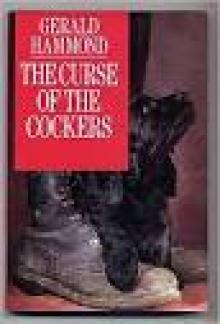 The Curse of the Cockers
The Curse of the Cockers In Loving Memory
In Loving Memory Illegal Tender (Three Oaks Book 12)
Illegal Tender (Three Oaks Book 12) Cold Relations (Honey Laird Book 1)
Cold Relations (Honey Laird Book 1)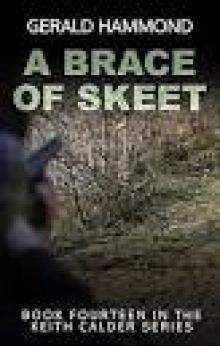 A Brace of Skeet
A Brace of Skeet Silver City Scandal
Silver City Scandal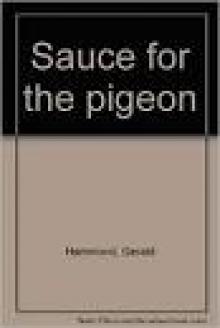 Sauce For the Pigeon
Sauce For the Pigeon Cold Relations
Cold Relations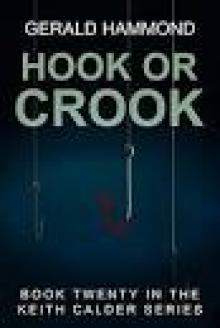 Hook or Crook
Hook or Crook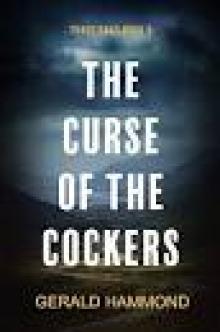 The Curse of the Cockers (Three Oaks Book 5)
The Curse of the Cockers (Three Oaks Book 5)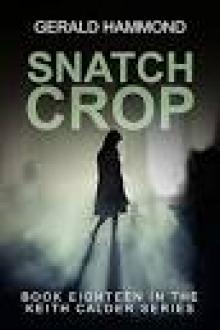 Snatch Crop
Snatch Crop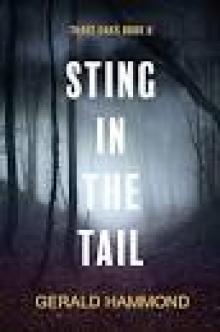 Sting in the Tail (Three Oaks Book 6)
Sting in the Tail (Three Oaks Book 6)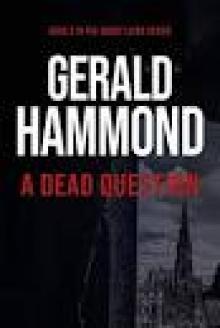 A Dead Question (Honey Laird Book 2)
A Dead Question (Honey Laird Book 2) In Loving Memory (Honey Laird Book 3)
In Loving Memory (Honey Laird Book 3) Thin Air
Thin Air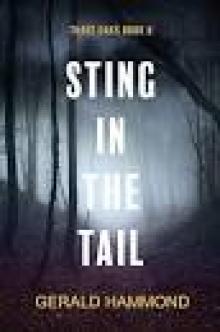 Sting in the Tail
Sting in the Tail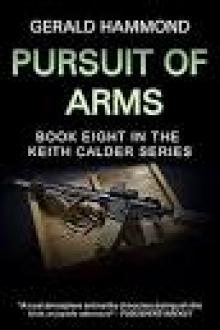 Pursuit of Arms
Pursuit of Arms The Game
The Game Give a Dog a Name (Three Oaks Book 4)
Give a Dog a Name (Three Oaks Book 4) Fair Game
Fair Game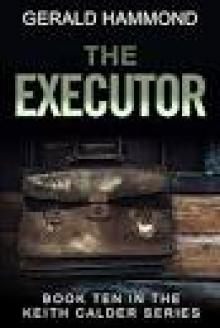 The Executor (Keith Calder Book 10)
The Executor (Keith Calder Book 10) Whose Dog Are You? (Three Oaks Book 2)
Whose Dog Are You? (Three Oaks Book 2)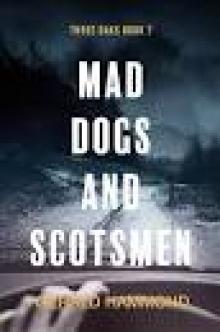 Mad Dogs and Scotsmen (Three Oaks Book 7)
Mad Dogs and Scotsmen (Three Oaks Book 7) Cousin Once Removed
Cousin Once Removed The Worried Widow
The Worried Widow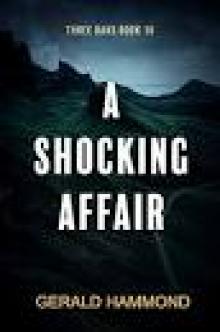 A Shocking Affair
A Shocking Affair Dead Weight (Three Oaks Book 11)
Dead Weight (Three Oaks Book 11) Whose Dog Are You
Whose Dog Are You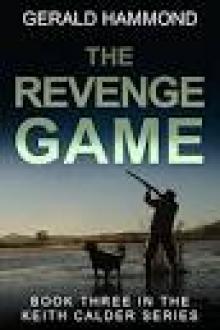 The Revenge Game
The Revenge Game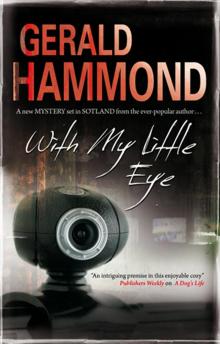 With My Little Eye
With My Little Eye Doghouse (Three Oaks Book 3)
Doghouse (Three Oaks Book 3)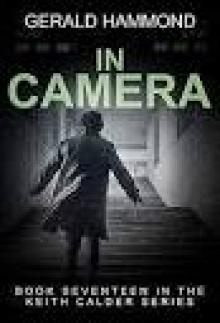 In Camera
In Camera Bloodlines (Three Oaks Book 8)
Bloodlines (Three Oaks Book 8)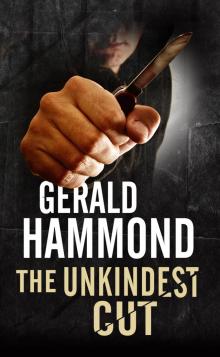 The Unkindest Cut
The Unkindest Cut